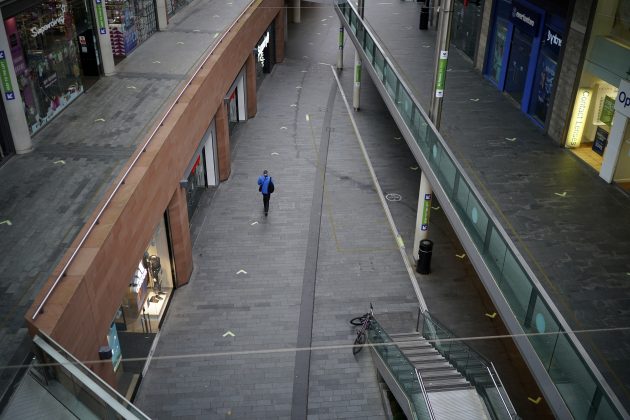Debenhams closure: What next for struggling retail landlords?

Retail landlords are set to take a multimillion pound hit following the collapse of Debenhams and Arcadia’s fall into administration, and could struggle to fill the space left by closed flagship stores.
Many property owners, which have already been impacted during the pandemic due to a spike in retail restructurings and renegotiated rents, will lose their anchor tenant when Debenhams closes its 124 UK stores if no buyer is found.
The collapse of Debenhams and potential Arcadia store closures will place additional pressure on struggling property firms, on top of the losses already sustained throughout the pandemic.
British Land, the owner of Sheffield’s Meadowhall shopping centre, said the value of its retail portfolio plunged 14.9 per cent in the first half of the year, while Hammerson announced earlier this year that adjusted profit plummeted 84 per cent in the six months to 30 June.
Meanwhile, Trafford Centre owner Intu entered administration in June after talks with lenders failed.
Richard Lim, chief executive at Retail Economics said the significance of Debenhams’ collapse can not be overstated “given the vast property portfolio, number of jobs impacted and the reverberations felt across the industry.”
According to real estate adviser Altus Group, the decision to wind down Debenhams will affect 1,059,958 sq m of retail floor space, totalling the equivalent of 148 premier league football pitches.
An estimate of the open market rent of Debenhams’ stores in April 2015 – the latest available figure – by HM Revenue and Customs’ Valuation Office Agency totalled £92.83m, Altus said.
However, as Debenhams has been through two administration processes since then it is likely that its rent bill was lower by the time it collapsed.
Risk of empty stores

A bigger struggle could be finding a new tenant to take on the department store vacancy.
Debenhams and other department stores are often the anchor tenant for shopping centre schemes, which attract customers and other retailers.
Shopping centres will be concerned that the closures will have a knock-on effect on other tenants.
The impact of Debenhams closures will vary on a scheme by scheme basis, Knight Frank head of retail research Stephen Springham said, but it is likely that “a lot of people are going to be scratching their heads”.
Pippa Stephens, retail analyst at Global Data, said the high profile retail failures will leave a “surplus of empty units for landlords to deal with”.
“With both of these players also having a significant presence within major shopping centres, operators will now struggle to fill these units in order to stop their locations from looking sad and depleted, causing particular problems for those already in financial turmoil, such as Intu,” she said.
Opportunities for retailers

Retailers that are geared up to survive the pandemic – such as Next, which has already opened beauty halls in former Debenhams stores, Primark and Sports Direct – have been mooted as potential new tenants that could snap up the space at discounted rents.
“For those retailers that are going to go the distance, it is a very good market,” Knight Frank’s Springham told City A.M.
Euromonitor fashion consultant Natasha Cazin said: “Once dominated by flagships to attract tourists in key city centres, fashion retail stores are instead soon expected to become the showroom for the brand.
“A rise in store vacancies, such as Debenhams and Topshop, is going to lead to a wave in pop-ups post-Covid-19, such as Primark with the opening of its Wellness pop-up in Shoreditch, London in February 2020.
“We also expect retailers to reduce their dependence on their flagship store and invest more in stores in smaller cities, to capture demand outside of London, as illustrated by Harrods which opened a store in Milton Keynes earlier this year.”
Changing town centres
“Most landlords will have seen this coming and built a contingency plan on the assumption that Debenhams’ future was finite,” Springham said, with the change presenting an opportunity for property firms to take a long-term view on their assets.
Kathryn Wood, head of development for London at Cushman & Wakefield said the changing role of the department store has “been underway for some time”.
The departure of Debenhams from the hight street “presents a significant opportunity for progressive landlords to increase vibrancy and creativity in our urban centres” she said.
“Behind the scenes, many landlords have already been reviewing the future of these spaces, navigating the new retail landscape and determining how their stores should adapt to suit their target customers – and we have been advising on a number of these projects”.
Wood added: “There is no ‘one size fits all approach’ to such challenges, but this presents an exciting opportunity to create new, more resilient, mixed use urban centres”.